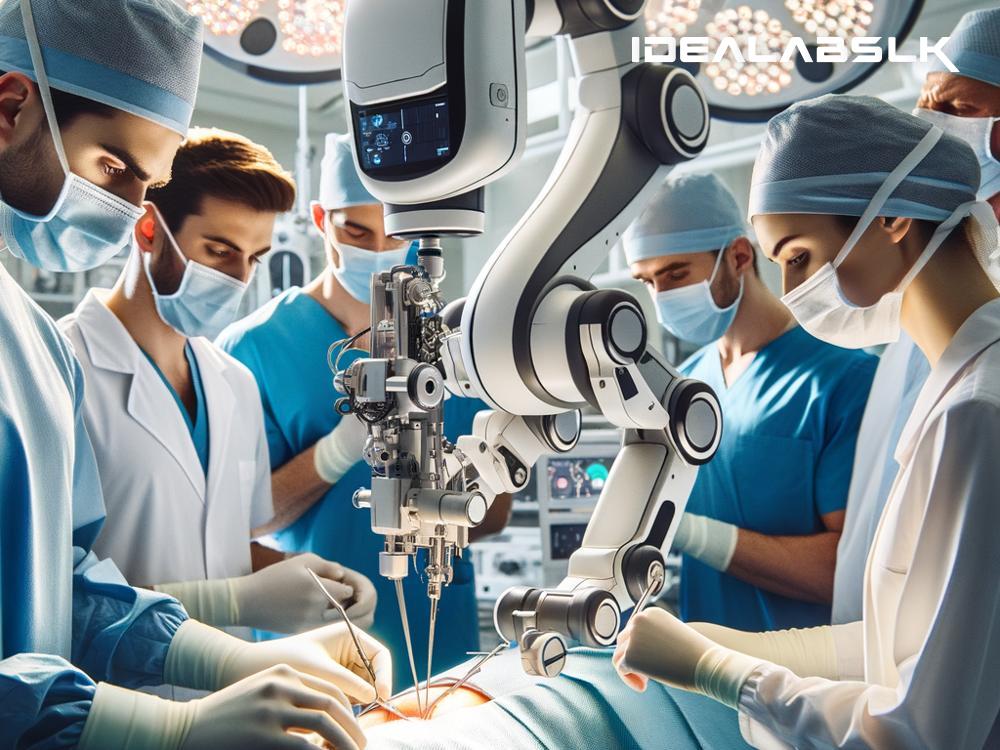Title: How AI and Robotics Are Revolutionizing Support for Healthcare Workers in Surgery and Rehabilitation
Imagine a future where surgeries are smoother, rehabilitation is faster, and healthcare workers have extra hands supporting them, but in a twist, those hands are operated by robots and guided by artificial intelligence (AI). Well, the future is here! AI and robotics are already playing significant roles in providing surgical assistance and aiding in rehabilitation, making the healthcare system more efficient, precise, and reliable.
Surgical Assistance: Robots in the Operating Room
Surgery, a critical component of healthcare, demands high precision, steadiness, and endurance from surgeons. But even the most skilled surgeons have limitations—humans tire, and even the steadiest hands can shake. This is where robotic surgery systems step in to transform the operating room.
Imagine a robotic arm that can perform precise movements, controlled by a surgeon using a console. This isn't science fiction; it's the reality of robotic surgery systems like the da Vinci Surgical System, which has been improving surgical outcomes for years. These systems enhance a surgeon's ability to carry out complex procedures with more precision, flexibility, and control than is possible with conventional techniques.
Robotic systems don’t get tired or shaky. They can scale the surgeon's movements, making large motions smaller and more precise, allowing for minimally invasive procedures. This leads to benefits like reduced bleeding, quicker healing times, and less post-operative pain for patients.
AI: The Smart Assistant in Surgery
AI takes the capabilities of robotic systems even further. By integrating AI into surgical robots, these machines can now assist surgeons not just mechanically, but also intellectually. AI can analyze data from pre-op medical records to guide the surgeon during the procedure, offering real-time information that can predict complications before they occur.
Moreover, AI is revolutionizing surgical training. Through virtual reality simulations, surgeons can practice complex procedures in a risk-free environment. These simulations, powered by AI, provide realistic and responsive environments where surgeons can hone their skills, learn new techniques, and even simulate emergency scenarios without any risk to real patients.
Rehabilitation: Robotics and AI by Your Side
Rehabilitation is another area where AI and robotics are making significant strides. After surgery or injury, patients often face a long road to recovery, requiring physical therapy to regain strength and mobility. Traditionally, this process is labor-intensive, requiring significant time from physical therapists. Enter robotics and AI, offering innovative solutions to support both patients and therapists.
Robotic exoskeletons and AI-driven therapy robots are changing the rehabilitation process. These robots can assist patients in performing physical therapy exercises, offering support and resistance as needed. They can adapt to the patient's progress, providing personalized therapy sessions based on real-time performance and improvement.
AI systems can analyze data collected during therapy sessions to adjust the rehabilitation plan, ensuring optimal recovery paths for patients. They can predict outcomes, identify potential issues before they become problematic, and modify the therapy plan to address these concerns, all in collaboration with human therapists.
The Future of Healthcare Support: Ethics and Collaboration
As exciting as these technological advances are, they also bring new ethical considerations. Privacy concerns, data security, and the potential for job displacement in the healthcare sector are all valid issues that need to be addressed. Moreover, ensuring that these technologies are accessible to all, not just those who can afford high-end treatment, is crucial for equitable healthcare.
Importantly, AI and robotics are not replacements for human healthcare workers but rather powerful tools to enhance their capabilities. These technologies can take over repetitive, tedious, or physically demanding tasks, allowing healthcare professionals to focus more on patient care.
Conclusion
AI and robotics are not just supporting healthcare workers; they're revolutionizing the fields of surgery and rehabilitation. By enhancing precision in surgery and personalizing rehabilitation processes, these technologies promise better outcomes for patients and more efficient processes for healthcare workers. As we navigate the ethical implications and work towards equitable access, the collaboration between human ingenuity and technological innovation continues to push the boundaries of what's possible in healthcare.
In embracing these advancements, we're stepping into a new era of medical care—one where technology and human expertise come together to heal and rehabilitate, promising a brighter, healthier future for all.

